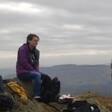Arts and Culture 29 April 2015
This year’s Shubbak festival of Arabic culture, taking place over two weeks in July in London, features some of the great names of contemporary Palestinian creativity, as well as a selection of newer artists.
The film section of the festival pays homage to veteran Nazareth-born cinema director Michel Khleifi, who has been invited to curate a personal selection of movies.
There will be a rare screening of Khleifi’s classic Wedding in Galilee, which won the International Critics’ Prize at the Cannes film festival in 1987. It was the first Palestinian film ever to appear at the celebrated exhibition of cinematic talent, although not the last to receive important awards there.
Wedding in Galilee is a sensuous, funny, sad and dramatic portrait of Palestinian village life in the Galilee, under pressure from Israeli colonialism and with generations reacting to the differing influences on their lives. It also features a small, early role from Juliano Mer Khamis, who went on to head the Freedom Theatre before his assassination in 2011.
Alongside this, there will also be screenings of the three sections of Khleifi and Eyal Sivan’s 2003 road movie Route 181 – named for the 1947 UN resolution which split up Palestine, giving the majority of the land to the Zionist camp.
Khleifi has also chosen a range of Arab and European films which will run throughout the festival.
Stars of Palestinian literature
The literature section of the festival, which is to be held at the British Library, also includes appearances from several high-profile Palestinian writers.
British-Palestinian writer Selma Dabbagh joins the award-winning Iraqi writer and translator Sinan Antoon (who translated Mahmoud Darwish’s In the Presence of Absence) and Marcia Lynx Qualey of the ArabLit blog in a discussion on the rising popularity of Arabic literature in translation.
And Palestinian writer Atef Abu Seif (author of The Drone Eats With Me and editor of 2014’s Book of Gaza) reads alongside Syrian author and journalist Samar Yazbek.
The biggest names from the literature festival, though, are Palestinian poet Mourid Barghouti and Lebanese novelist Elias Khoury.
Khoury is most famous for his novel Gate of the Sun, mentions of which are usually prefixed with words such as “brilliant” and “epic.”
First published in 1998, it has gone on to be recognized as perhaps the best, and certainly best-known, literary representation of the 1948 Nakba and the experiences of Palestinian refugees.
Poet Mourid Barghouti, meanwhile, is probably best known in English-reading circles for his two autobiographical classics, I Saw Ramallah and I Was Born There, I Was Born Here, in which he explores his life as a dissident Palestinian voice, an exile from both his birthplace in the West Bank town of Deir Ghassaneh and at times from his adopted home in Egypt.
Barghouti will be appearing in both a discussion on the role of literature in times of conflict, and an evening of poetry from the Arab world, which will also feature Palestinian spoken word artist Rafeef Ziadah and poets from Egypt and Iraq.
Versions of dabke
Also on show will be two very different versions of the traditional Palestinian music and dance genre of dabke.
On one hand, Badke, staged at the prestigious South Bank Centre, is a performance of contemporary ballet by ten Palestinian dancers, based on dabke but with influences from each dancer’s own background – in traditional dabke, modern dance, hip-hop, Brazilian capoeira and circus movement.
On the other hand is 47Soul, a British-Palestinian “electro-dabke” band who will be performing at the festival’s closing musical event on 25 July.
Tags
- Shubbak
- film
- cinema
- michel khleifi
- Wedding in Galilee
- Nazareth
- Cannes International Film Festival
- International Critics' Prize
- Juliano Mer-Khamis
- Freedom Theatre
- eyal sivan
- Route 181
- British Library
- Selma Dabbagh
- Sinan Antoon
- Mahmoud Darwish
- Marcia Lynx Qualey
- ArabLit
- translation
- Atef Abu Saif
- The Drone Eats With Me
- The Book of Gaza
- Samar Yazbek
- Mourid Barghouti
- Elias Khoury
- Gate of the Sun
- autobiography
- I Saw Ramallah
- I Was Born There I Was Born Here
- Deir Ghassaneh
- Egypt
- Rafeef Ziadah
- dabke
- South Bank Centre
- london
- Badke
- capoeira
- hip-hop
- 47Soul





